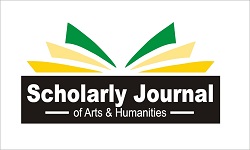Maurice Jonas Woode
Akrofoum District Assembly
Abstract
The present and past leaders of Ghana seem to have failed to provide quality leadership capable of addressing numerous challenges confronting the country. Despite different efforts made by some leaders to bring about positive development, the country’s leadership has always been marred with challenges. The issue of getting the right leadership to propel good governance has been a recurring challenge in Ghana and developing countries in general. This study examines the current leadership challenges in Ghana. The most critical challenge confronting Ghana is leadership. These leadership challenges are evidenced in political, social and economic instability and the prevalence of ethnic, communal and religious crises, which have bedeviled Ghana socio economic development. The reverberation effects of the failure of leadership, corruption and bad governance are visible and being felt across all sectors and segment of the Ghanaian society. Leadership and good governance are crucial to realizing any giant stride taken in pursuit of development anywhere in the world, Ghana is not an exception. The Contingency Theory of Leadership propounded by Fred Fiedler was adapted. The study assesses the challenges of leadership in Ghana and the characteristics of good governance. It was concluded that, to tackle the challenges of leadership that bedeviled the country, Ghana needs sound ethical leadership that is rooted in respect, service, justice, honesty and community. Leaders who place fairness at the center of decision making, including the challenging task of being fair to individuals as well as to the common interest of the community they serve. It therefore recommended that leaders should have good moral conduct and ethical responsibility to enable them to attend to the demands, concerns, needs, and problems of the citizens in the country.
Keywords: Participation, Leadership, Development, Good Governance, Rule of law, Management

